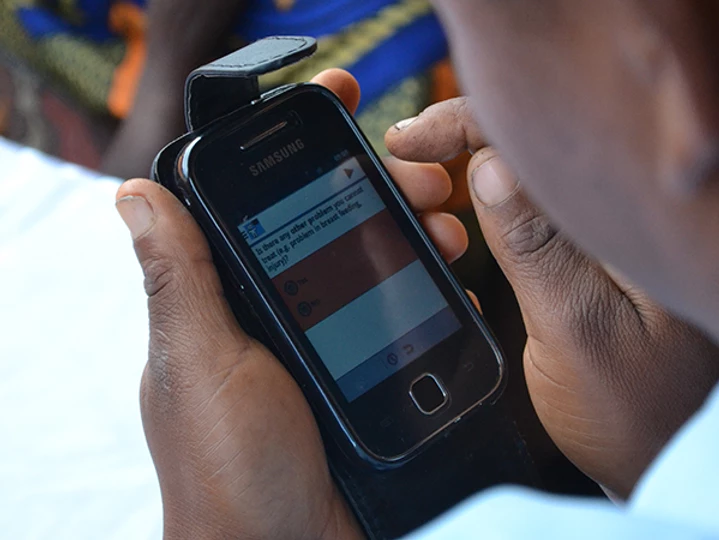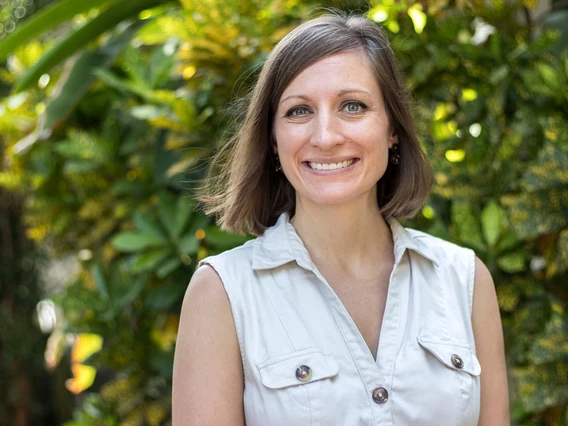Since 2010, we have been working with the Revolutionary Government of Zanzibar’s Ministry of Health to improve maternal, newborn, and child health by increasing access to high-quality care at the community and primary health levels. Together, first through the Safer Deliveries program and more recently through the government’s national community health program, Jamii ni Afya, Zanzibar has supported a professional cadre of community health volunteers (CHVs) who serve as a critical linkage to primary care.
In addition to proven global practices for supporting effective community health worker programs, CHVs in Zanzibar have also been equipped with a digital health platform that guides their screening or counseling and that digitizes data collection and reporting during visits. This means that not only do patients receive care aligned with quality standards, but also data becomes more accessible for supervisors and health managers as they make decisions.
We are thrilled to announce that we recently joined the Community Health Impact Coalition, a field catalyst dedicated to making professionalized community health workers a global norm. The Coalition works through radical collaboration with NGOs globally that implement high-quality community health programs, bringing together shared voices, experience, and data to research practices that lead to quality care by community health workers (CHWs) and to advocate for the adoption of quality-producing practices.
CHIC has developed a set of eight principles for designing effective community health worker programs:
Accredited
Accessible
Proactive
Continuously trained
Supported by a dedicated supervisor
Paid
Part of a strong health system
Part of data feedback loops
They have achieved a lot in the last three years, including getting design principles included in the World Health Organization’s CHW guidelines, the USAID CHW Assessment and Improvement Matrix quality tool and the Global Financing Facility’s Funders Quality Toolkit, and have been influential in promoting the role of CHWs in COVID-19 relief efforts.

We are excited to join the Coalition in advancing these principles and elevating the important role that CHWs can play as countries move toward universal health coverage. We embrace these principles in our partnership with the Government of Zanzibar and through all of our work supporting high-impact primary health systems. Here are three examples from the Jamii ni Afya program that align particularly well with the Coalition’s principles:
1. Formal recognition in community health strategy
When the Zanzibar Ministry of Health launched its National Community Health Strategy, 2019-2025 the Jamii ni Afya program and CHVs were included. Codifying the role of CHVs alongside other formal cadres of health workers reflects political will to support CHVs and creates clear linkages to the primary health system, through their relationships with supervisors at primary health facilities and support from community-based health committees.
2. Supported, not led, by technology
An important benefit of the Jamii ni Afya program is that the digital health platform is more than just a mobile app, it enables a digital transformation at each level of the health system. During home visits, CHVs use an app that guides them through counseling in accordance with existing packages of care. At the same time, the app is recording data on the visit for the government’s community health information system and monitoring health worker performance.
Equipped with a dashboard, CHV supervisors can use the performance monitoring data to personalize and tailor their coaching and mentoring to best support a unique CHV’s needs, helping them continue to learn and improve future health visits.
And, since January 2021, data from Jamii ni Afya has been integrated with the government’s health management information system (DHIS-2) enabling managers at district and national levels to have a clearer picture of community health across Zanzibar.
3. Financial incentives and sustainability
As the national community health strategy was developed, the Ministry recognized the importance of compensating CHVs relative to their level of effort while also ensuring costs were feasible for the Ministry to afford in the future. We were able to utilize the CHW Coverage and Capacity Tool (C3) to model CHV workload and set payments relative to their level of effort, ensuring a fair payment for work completed. As new service delivery modules are added to the package of services delivered, we are working with the government to re-model workloads and adjust expectations and/or payment to account for increased responsibility.
What comes next?
In the coming months, Zanzibar’s Ministry of Health will finish scaling Jamii ni Afya to all communities in Zanzibar, connecting everyone with a national digitally enabled community health program and providing health managers greater visibility into health system performance.
We are excited to continue supporting CHVs in Zanzibar to ensure every community has access to high-quality healthcare, and we look forward to using our experience to drive advocacy and research within the Community Health Impact Coalition so that everyone, no matter who they are or where they live, can gain access too.

